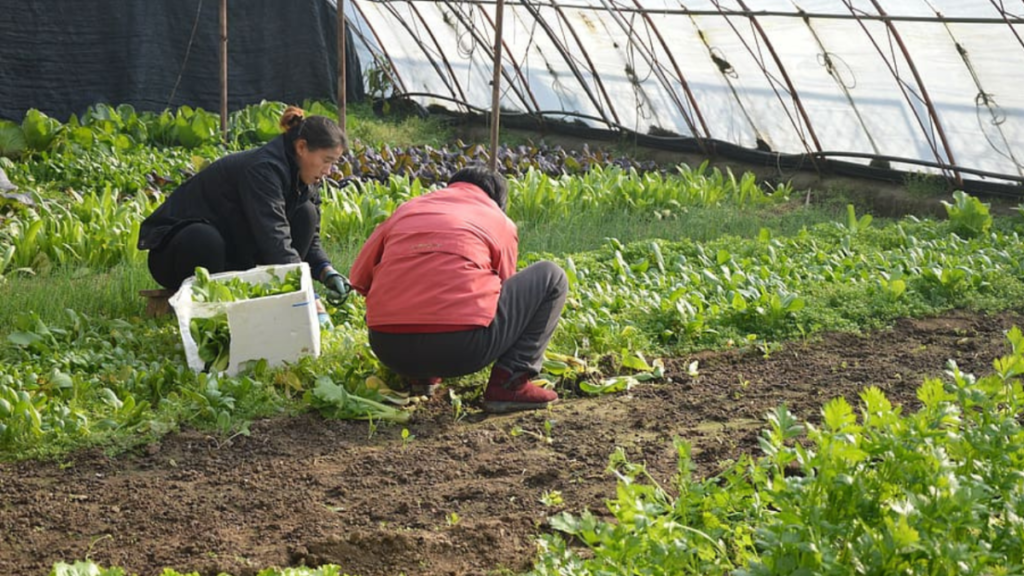
Organic farming education plays a crucial role in equipping individuals with the knowledge and skills necessary to cultivate crops and raise livestock using sustainable practices. It encompasses a wide range of topics, including soil health management, pest and disease control without synthetic chemicals, crop rotation, composting, and the principles of organic certification. Beyond technical skills, organic farming education also emphasizes the importance of environmental stewardship and biodiversity conservation. It aims to empower farmers with the tools to enhance soil fertility, reduce reliance on external inputs, and promote healthier ecosystems. Ultimately, organic farming education contributes to fostering a community of farmers committed to sustainable agriculture practices and environmental resilience.

Organic farming education is at the forefront of a global movement towards sustainable agriculture, where the principles of environmental stewardship and holistic farming practices are paramount. As awareness grows about the detrimental effects of conventional farming on soil health, biodiversity, and human health, organic farming education emerges as a vital solution. This educational approach equips farmers and agricultural professionals with the necessary knowledge and skills to cultivate crops and raise livestock in ways that promote ecological balance, reduce reliance on synthetic inputs, and enhance overall farm resilience.
Central to organic farming education is the emphasis on sustainable soil management practices. Healthy soil serves as the foundation of organic agriculture, supporting robust plant growth and nutrient uptake while maintaining natural ecosystems. Organic farmers are trained in techniques such as composting, cover cropping, and crop rotation to improve soil fertility and structure without the use of synthetic fertilizers or pesticides. These practices not only sustain long-term soil health but also contribute to carbon sequestration, mitigating climate change impacts by storing carbon in the soil organic matter.
Integrated pest management (IPM) is another critical aspect taught in organic farming education programs. Instead of relying on chemical pesticides that can harm beneficial insects and contaminate water sources, organic farmers learn to employ a combination of biological controls, crop diversification, and habitat manipulation to manage pests and diseases. By fostering natural predator-prey relationships and creating biodiverse farm ecosystems, organic farming reduces pest pressures while promoting ecological resilience.
Education in organic farming also includes understanding and complying with organic certification standards. Certification ensures that organic farmers adhere to strict guidelines regarding soil health, pest management, and the use of inputs. Farmers undergo training to implement organic practices in accordance with these standards, enabling them to market their produce as certified organic and meet the growing consumer demand for environmentally friendly and health-conscious food choices.
Beyond technical skills, organic farming education instills a deep understanding of agroecological principles and their implications for sustainable food systems. Farmers learn to integrate biodiversity conservation, water conservation, and renewable energy use into their farming practices, enhancing farm sustainability and resilience to environmental changes. This holistic approach not only benefits the environment but also contributes to the economic viability and social well-being of farming communities.
Institutions and organizations play a crucial role in delivering organic farming education through formal training programs, workshops, and research initiatives. Universities, agricultural colleges, and extension services offer courses that cover a wide range of topics from soil science and plant biology to agricultural economics and marketing. Hands-on training and experiential learning opportunities provide aspiring farmers with practical skills and knowledge essential for successful organic production.
Community-based initiatives and farmer networks also contribute significantly to organic farming education. Farmer-to-farmer knowledge sharing, mentorship programs, and participatory research projects enable farmers to learn from each other’s experiences and adapt organic practices to local conditions and challenges. These grassroots efforts foster a sense of solidarity and collaboration among farmers, strengthening the organic farming community and promoting innovation in sustainable agriculture.
Organic farming education is not only about technical knowledge but also about fostering values of environmental stewardship, social responsibility, and ethical farming practices. By promoting transparency and accountability in food production, organic farmers contribute to building trust and consumer confidence in organic products. Moreover, organic farming education encourages farmers to engage with consumers and educate them about the benefits of organic agriculture for human health, biodiversity conservation, and environmental sustainability.
In conclusion, organic farming education plays a pivotal role in advancing sustainable agriculture and addressing global challenges related to food security, environmental degradation, and public health. By equipping farmers with the knowledge and skills to adopt organic practices, education programs contribute to building resilient food systems that can withstand climate change impacts and promote biodiversity conservation. Investing in organic farming education is essential for ensuring the long-term viability of agriculture, enhancing the well-being of farming communities, and fostering a healthier planet for future generations.









